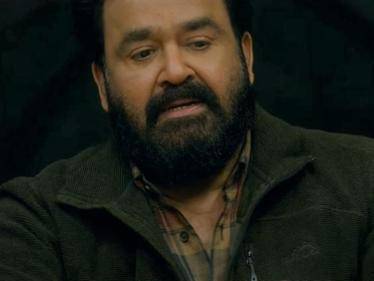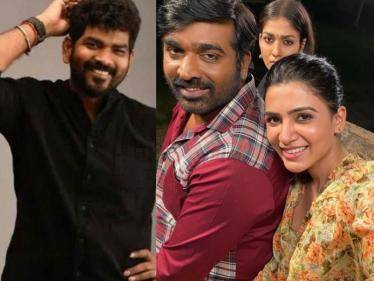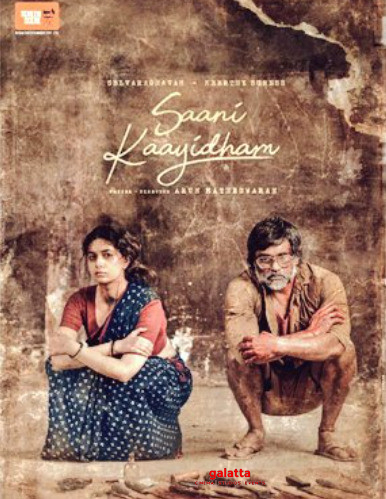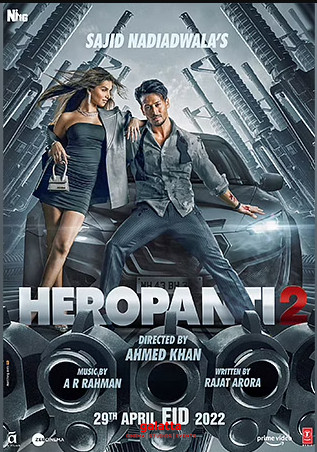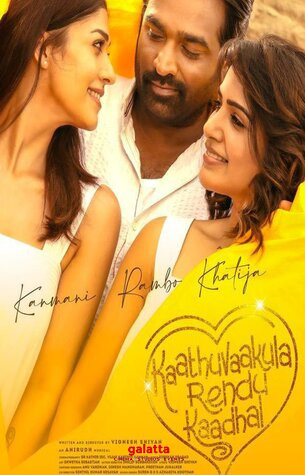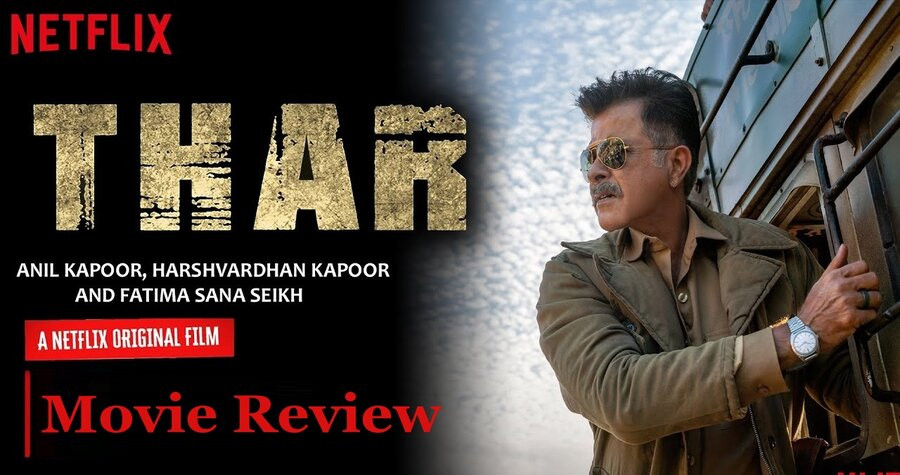
Thar Movie Cast & Crew
The lay of the land is laid out in the most brilliantly poetic fashion in Thar, a kind of neo-Western directed by Raj Singh Chaudhary. (The voiceover-words are dazzling, and I suspect this is why we get the thank-you card to Gulzar.) Anil Kapoor plays the ageing-Sheriff equivalent, an inspector named Surekha Singh. He is stuck in this one-horse border town in Rajasthan, and he isn't entirely happy about the lack of upward mobility in his career. But his wife is relieved that all he has to do is solve petty crimes, nothing dangerous. Besides, she knows he cannot deal with hierarchical politics. Their son, however, says he will study for the IPS exam, become a cop, and lord over his father. These little "character touches" paint a picture of a man who is so not prepared for what's about to happen.
Someone is butchered and killed. A couple is shot dead while their daughter is making out with her lover. Things are stolen. Anurag Kashyap is the dialogue-writer. His delightfully vulgar phrasings add a ton of flavour to the classically visualised narrative, which is painted in the colours of the desert. Every image, right down to the costumes, is colour-coordinated with the Thar. There isn't one colour that clashes. This is a gorgeous-looking movie, and this makes the ugliness at its centre even more ugly. Going back to the Western analogies, Harshvardhan Kapoor plays the mysterious stranger in town, and the typical "saloon" is replaced by a teahouse. Satish Kaushik plays the Sheriff's sidekick, who is as unprepared as his master to smoke out the culprit.
The premise is interesting especially in the set-up stage, and unlike the old-time Westerns, there is some social commentary scattered throughout. The patriarchy blames the woman for a couple's childlessness. A man slaps his wife for allowing a stranger to visit their home when he was away. (It's a sawaal to his izzat.) There are a few lines about oppressed castes. Dacoits used to belong to these castes, and even today, a man belonging to these castes is shunned. Let's say he opens a teashop of his own. He'd end up with no patrons. The film even touches on the general lack of education in these parts, which makes a literate man stand out.
The narrative is woven from two strands. The first is whether Anil Kapoor will crack the case. The second is what the Harshvardhan Kapoor character is really after and why, especially when we see the things he does. (When we do find out, it's utterly underwhelming.) And in between, we have opium smuggling across the border, back and forth. A man named Hanif Khan is presented as the poster-boy smuggler, but none of these characters or situations (like an affair we see early on) are written with any depth. And without any help from the writing, no one apart from veterans Anil Kapoor and Satish Kaushik is capable of fashioning at least the semblance of a flesh-and-blood person on their own. Harshvardhan Kapoor and Fatima Sana Shaikh appear miscast in this milieu. Their characters do not register the rage inside them. The only aspect detailed with care is the graphic violence.
I think the makers were going for a slow-burn Chinatown-styled narrative, where you peel off one layer and there's another, and you peel off that layer and there's yet another. Also, there's the plot point about a man who sets out to solve a case and gets overwhelmed by the circumstances. But one, there are not all that many layers, and two, the layers that do exist aren't terribly interesting. The writing is as spare as the desert, clean and uncluttered – but this lack of texture also robs the story of momentum. The segues between one scene to the next seem airless and still, while they should really be accelerating at least in our minds (if not on screen). This is not about feeling for the characters, but about being involved with them or invested in their fate. By the time Thar winds down, you are left with more questions than answers. But well, at least the film looks beautiful!
About Author

Baradwaj Rangan
National Award-winning film critic Baradwaj Rangan, former deputy editor of The Hindu and senior editor of Film Companion, has carved a niche for himself over the years as a powerful voice in cinema, especially the Tamil film industry, with his reviews of films. While he was pursuing his chemical engineering degree, he was fascinated with the writing and analysis of world cinema by American critics. Baradwaj completed his Master’s degree in Advertising and Public Relations through scholarship. His first review was for the Hindi film Dum, published on January 30, 2003, in the Madras Plus supplement of The Economic Times. He then started critiquing Tamil films in 2014 and did a review on the film Subramaniapuram, while also debuting as a writer in the unreleased rom-com Kadhal 2 Kalyanam. Furthermore, Baradwaj has authored two books - Conversations with Mani Ratnam, 2012, and A Journey Through Indian Cinema, 2014. In 2017, he joined Film Companion South and continued to show his prowess in critiquing for the next five years garnering a wide viewership and a fan following of his own before announcing to be a part of Galatta Media in March 2022.






